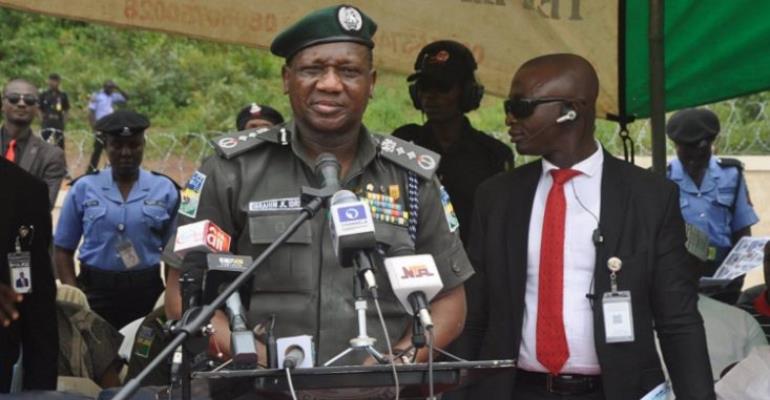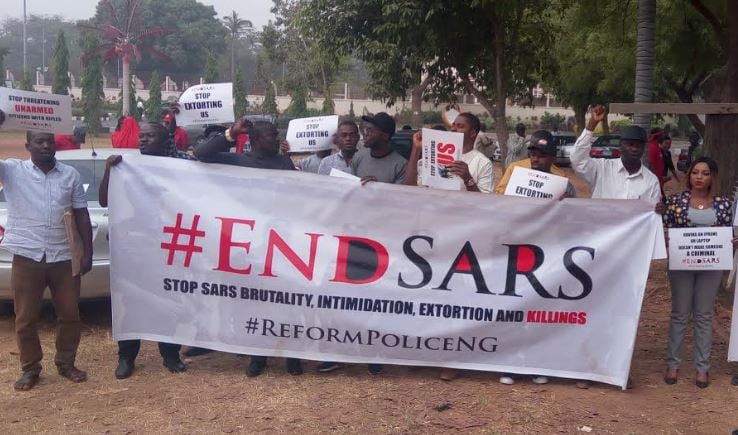
On Tuesday, Acting President Yemi Osinbajo ordered Ibrahim Idris, inspector-general of police, to overhaul the police special anti-robbery squad (SARS) with immediate effect. Osinbajo also asked the National Human Rights Commission (NHRC) to set up a committee that will conduct nationwide investigation of the alleged unlawful activities of SARS in order to afford members of the public an opportunity to present their grievances.
The acting president said the directive was as a result of the incessant complaints against the police unit. SARS has had a record of alleged human rights abuses which led to the #EndSARS campaign.
Hours after Osinbajo gave the order, Jimoh Moshood, police spokesman, issued a statement that Idris had complied with the directive.
Moshood said the IGP had introduced new measures.

Idris
“The Inspector General of Police, in compliance with the Presidential directives, has ordered the immediate overhauling of the Special Anti-Robbery Squad (SARS) to address complaints and allegations on human rights violations against some of the personnel of Special Anti-Robbery Squad (SARS) from members of the public in some parts of the Country,” Moshood had said in a statement.
But curiously, however, a close look shows this overhaul may not be totally different form some actions taken in the past. A review by TheCable showed that this is the third of such effort in less than a year.
AN OVERHAUL INDEED OR SAME OLD STORY?
According Merriam Webster Dictionary, overhaul means to change something completely in order to improve it. The presidential directive was clear: “an immediate overhaul of the police unit”. Checks by TheCable show that some of the measures which the police introduced as “new” have been in existence before now. For instance, the police said the outfit “will now be known as federal SARS (FSARS)” but the unit was first given the name in December last year.

Osinbajo gave the order
Also, the IGP announced that “a federal SARS commander of a rank of chief superintendent of police (CSP) will be in charge of FSARS in state and zonal commands across the country” and that the unit will “henceforth operate under the department of operations, force headquarters” – exactly same measures announced in December last year.
The IGP’s first shot at improving the unit was on December 4, 2017, when he directed its reorganisation. The IGP had appointed an deputy inspector-general of police to take charge of the squad and asked the operatives to stay off civil matters.
The police also listed unscheduled visits to SARS formation nationwide among the new measures but two months ago, Idris mandated his X-Squad to go round the commands and police formations nationwide to ensure strict compliance with his review.
Interestingly, the police said on Tuesday that SARS was “previously under the force criminal intelligence and investigations department (FCIID)” whereas in December, the IGP had said the unit had been moved to the department of operations at the force headquarters.

Anti-SARS campaigners
THE LATEST SARS ‘OVERHAUL’
| S/N | ALREADY EXISTING MEASURES INTRODUCED AS ‘NEW’ | THE NEW THINGS |
|---|---|---|
| 1 | Renaming of SARS TO FSARS | Unit will be intelligence driven |
| 2 | Commissioner of police now in charge | New code of conduct |
| 3 | Training organised for operatives in collaboration with civil society organisations. | Psychological evaluation of FSARS personnel |
| 4 | Official uniform marked for identification | New committee set up to review FSARS operations |
| 5 | Unit now under department of operations, force headquarters | Human rights desk to be in place in all SARS formation |
| 6 | FSARS commanders of a rank of chief superintendent of police to be in charge of the unit at the state and zonal commands | |
| 7 | Operatives to stay off civil matters |
If the IGP had announced the same measures in the process of reorganising the force months ago, most of the measures put in place after the presidential directive are not new as claimed but a revision of an initial arrangement that was seen not to be effective.


Be the first to comment